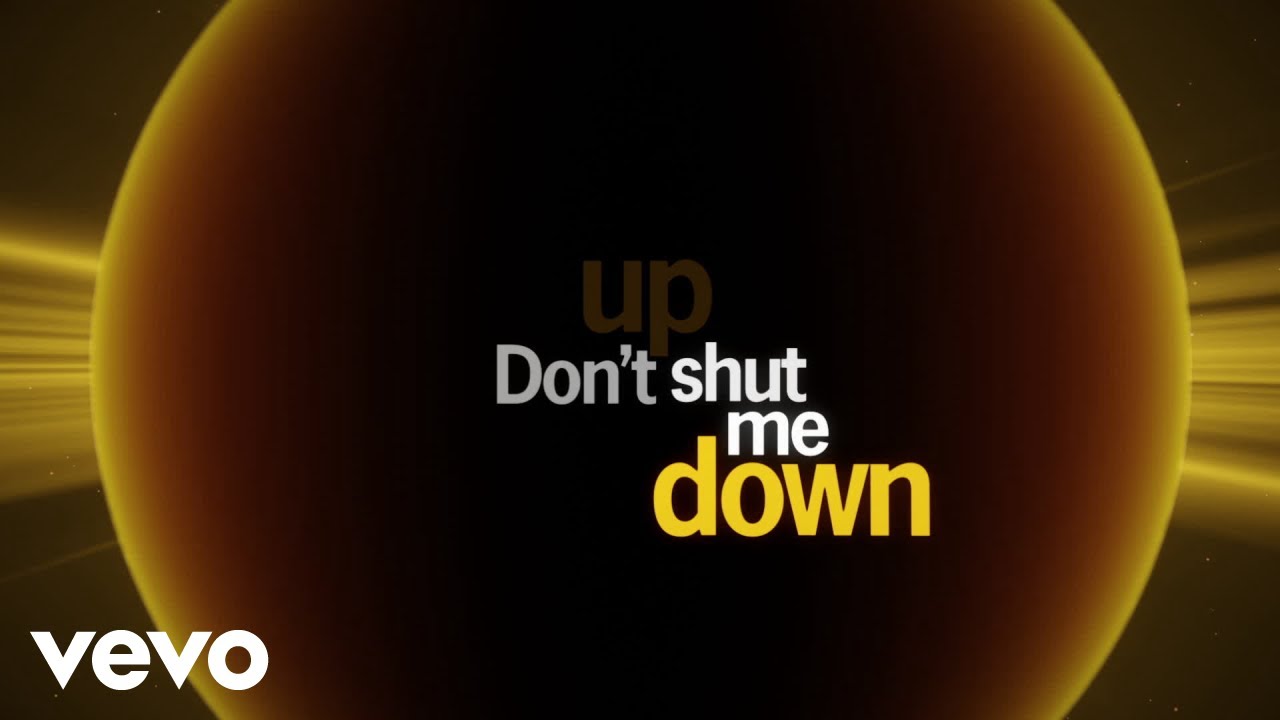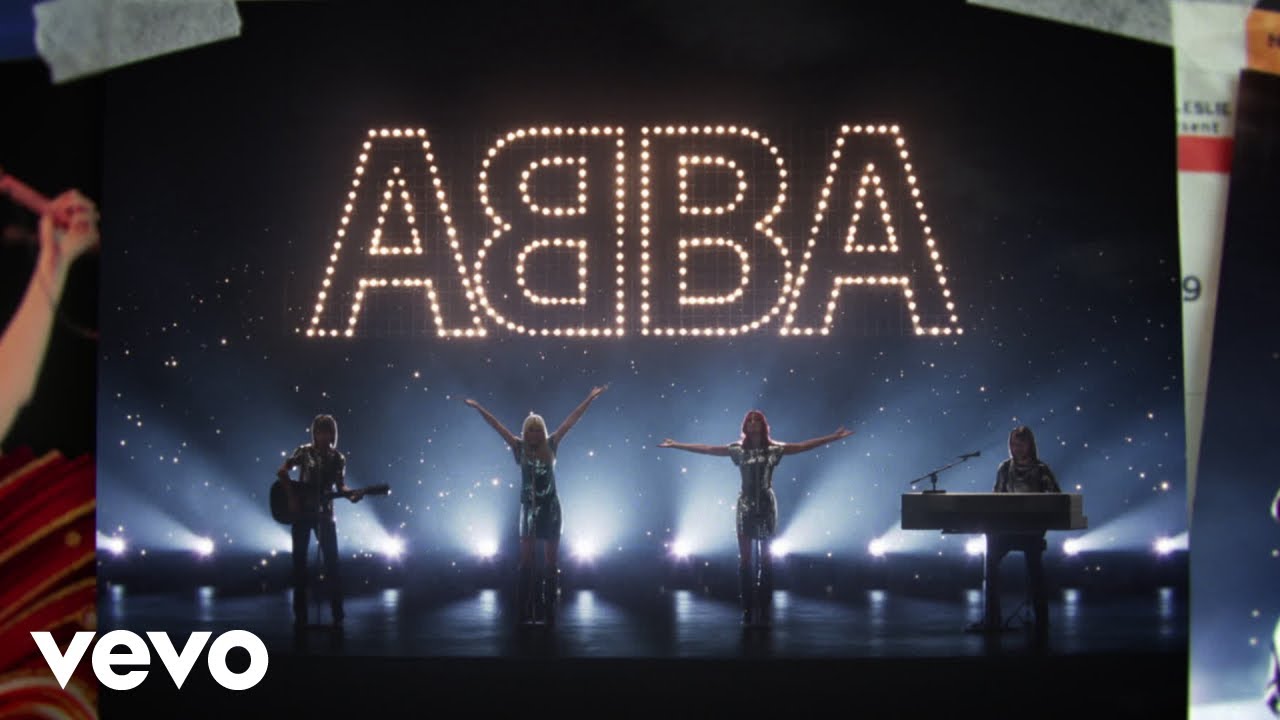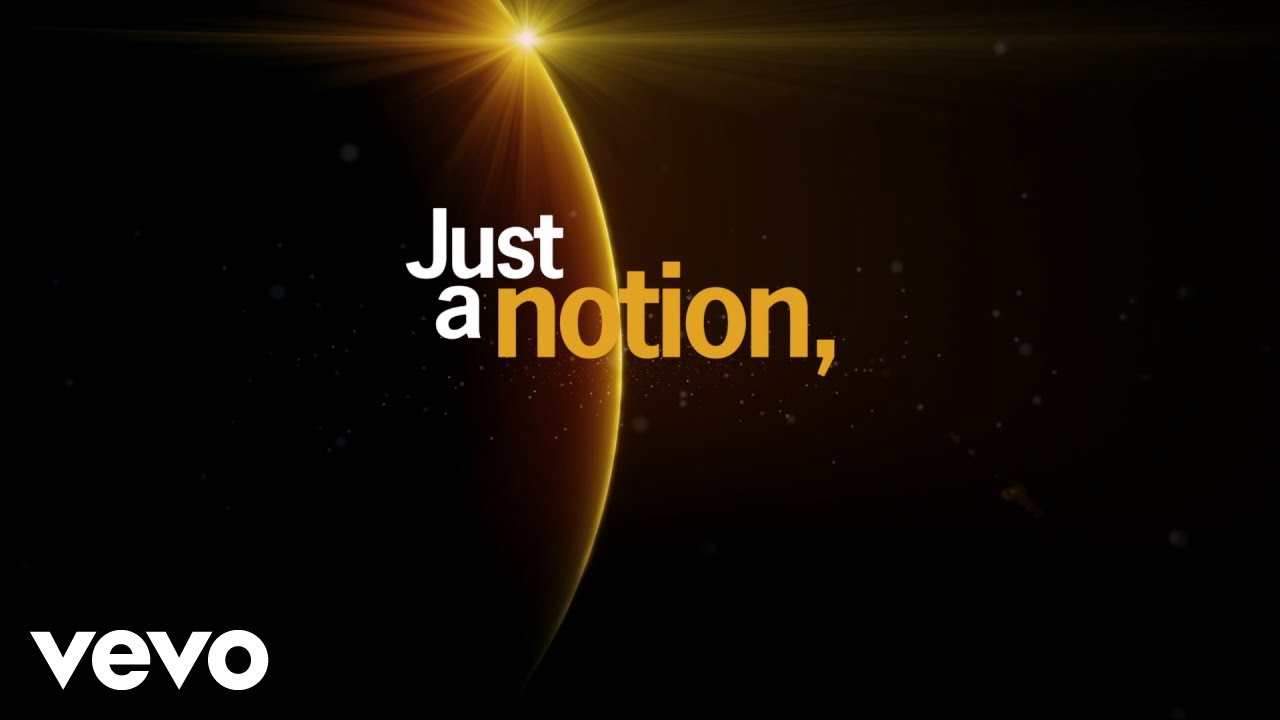I have measured out my life with coffee spoons;
I know the voices dying with a dying fall
Beneath the music from a farther room.
So how should I presume?
T.S. Eliot – ‘The Love Song Of J. Alfred Prufrock’
On Friday, November 5, 2021, while the eyes of the world were on COP26, its ears were otherwise engaged. A hush fell over even the "blah blah blah" of the climate change conference. Bowing to the inevitable, and in recognition of the millions of Swedish Kroner raised for UNICEF since 1979 from the royalties to ‘Chiquitita’, UN Secretary-General António Guterres gave delegates an hour off to listen to ABBA’s new album, Voyage. “"was sick and tired of everything when I called you last night from Glasgow," Greta Thunberg was reported as saying. "But this album is pretty good. Even the track about Tammy the cat. If ABBA can pull this off after 40 years, so can we. We do have it in us!"
We cannot know how history will judge ABBA’s staged intervention in terms of saving the planet – it is still too soon to say – but it does seem likely the release of Voyage marks the moment at which traditional music criticism, already on the endangered list in many parts of the world, became functionally extinct. And although rare examples may continue to survive in protected environments such as The Quietus, we are unlikely ever again to see herds of opinion of the sort that were once so commonplace sweeping dyspeptically across the pages of NME, Melody Maker, Record Mirror, Sounds and many more. ABBA has outlived them all.
In this piece, I had intended to write about what ABBA have meant to me over the last 50 years while also trying to trace what ABBA have meant to the culture during the same period. But the more I thought about it, the more I realised it was impossible for me to divorce the two, any more than I could divorce myself from the culture. There were always three of us in this marriage.
The release of Voyage, then, the first new ABBA album since The Visitors in 1981, prompts three questions, the answers to which may surprise you:
Have ABBA made a good album? Irrelevant.
Have ABBA made a good ABBA album? Debatable.
Have ABBA made an ABBA album? Yes they have.
Now that that’s settled, we will unpack those answers and put them together like IKEA furniture, IKEA being another globe-straddling, Kroner-generating Swedish brand, the name of which derives from the identity and goals of its founders i.e. Ingvar Kamprad Emulates ABBA. This is a stupid lie, of course, but it may yet reveal a profound truth.
1. Have ABBA made a good album?
In the 1970s, few people thought of ABBA as an albums act, a situation that so frustrated Benny and Björn that they even resorted to naming ABBA’s fifth album The Album. But this didn’t do much good because of all the hit singles on it. The only listeners who really looked forward to ABBA’s album were children with a Christmas list on the go, which is why to this day all ABBA albums are released in November.
No, ABBA were a hit single machine. This may have endeared them to record buyers but those listeners who received their records for free mostly hated the group. Reviewing Greatest Hits in Village Voice in 1976, Robert Christgau could write, "The band’s real tradition is the advertising jingle, and I’m sure their disinclination to sing like Negroes endears them to the Europopuli"; on the release of Greatest Hits Vol. 2 three years later, he was unambiguously hostile: "We have met the enemy and they are them." And while ABBA did have pockets of support within the rock establishment – e.g. the ‘Dancing Queen’ piano flourishes of Elvis Costello’s ‘Oliver’s Army’ or Pete Townshend’s somewhat cagey endorsement of ‘SOS’ ("I remember hearing it on the radio and realising that it was ABBA. But it was too late, because I was already transported by it.") – the prejudice remained. ABBA were inauthentic, naff and ineluctably Swedish; a cheap and cheerful flat pack forgery. ABBA were not a real group.
Towards the end of the decade, as ABBA matured in sound and its members divorced, more critical respect was shown towards the craft and the sadness of records like ‘The Winner Takes It All’, though often it proved hard to write about them without sniggering over Agnetha’s enunciation of the word "apologise" rather than focus on her virtuoso, emotionally-charged performance. Meanwhile on BBC 2’s Not The Nine O’Clock News, a popular satire programme mostly written by and starring the Oxbridge graduates who couldn’t get into NME, the group was lampooned in the song ‘Supa Dupa’, opening couplet: ‘One of us is ugly, one of us is cute / One of us you’d like to see in her birthday suit.’ (It’s on YouTube should you wish to be complicit in the abuse retrospectively. The lyrics of ‘Supa Dupa’ were the work of Richard Curtis, who many years later would co-write the screenplay of Mamma Mia! Here We Go Again. I wonder if the subject ever came up.)
The Visitors is now widely judged to be ABBA’s best album, a dimly-lit, chilly collection of songs reflecting political upheaval in Eastern Europe, the emotional estrangement of Frida and Benny and Björn and Agnetha, and the imminent demise of the group. And the music is glacial, the apex of ABBA’s late analogue synth sound. Yet when the LP was released in late 1981, I can well recall people having a good old snark about it. Here they come again with one of their November albums, looking all middle-aged and singing about their divorces over a Bontempi organ backing track. Ugh, there’s one about being "not too old for sex" (‘When All Is Said And Done’). "There’s another one about their kids growing up, spew" (‘Slipping Through My Fingers’). "THERE IS A WEIRD SONG ABOUT ONE OF THE MEN DATING A MOTHER AND DAUGHTER WITH A STUPID LITTLE COMEDY CIRCUS BIT AT THE END AHAHAHAHA" (‘Two For The Price Of One’). "Now please excuse me, I must listen to the innovative new sounds of The Human League’s Dare, which I read about in Smash Hits and which was released in October, a much more futuristic month than November.
The game was nearly up. Two further singles relatively few people liked or understood were released in 1982, ‘The Day Before You Came’ and ‘Under Attack’, and then the group went on hiatus for 40 years. Critical judgement had been handed down. ABBA were pop music in translation and always would be.
But this verdict would be overturned on appeal.
2. Have ABBA made a good ABBA album?
For most of the 1980s, no one gave a fuck about ABBA. I remember being in a record shop circa 1985, noticing that several of the group’s early albums had been issued on CD, still the exciting new format then, and thinking this was absurd. Who would want to listen to these relics of ‘the decade that taste forgot’ ever again, let alone in perfect sound (sic)?? I purchased Let Them Eat Bog Shed and moved on.
The story of ABBA’s rehabilitation – or perhaps just its habilitation – over the following decade is by now familiar. The beats are as follows. The Australian tribute group Björn Again wind up supporting Nirvana at the Reading Festival; Erasure’s Abba-esque EP charts in 1992; Knowing Me Knowing You with Alan Partridge airs first on radio, then on TV; Benny and Björn join U2 on stage in Stockholm for a version of ‘Dancing Queen’;ABBA Gold is released to runaway sales, followed a year later by More ABBA Gold; P.J. Hogan’s film Muriel’s Wedding is released in 1994; and perhaps most significantly, in 1999, there is the huge success of Mamma Mia! on stage in the West End where, 22 years later, it is still running to packed houses. The publication in 2001 of Bright Lights, Dark Shadows, Carl Magnus Palm’s definitive biography of the group, seemed to complete the process.
Robert Christgau’s response to all this was simply to pretend that none of it was happening and pray that people would soon come to their senses and start listening to A+ music from Iris DeMent and Moby. In the UK, meanwhile, the generation of music writers who had grown up with ABBA was now coming of age. In March 1995, Melody Maker published a thin tome entitled Unknown Pleasures: 20 Great Lost Albums Rediscovered, compiled and written by 14 men and one woman, and given away with the paper. Alongside essays on Todd Rundgren (A Wizard, A True Star), The Go-Betweens (Liberty Belle & The Black Diamond Express) and The Raincoats (their self-titled debut), it included a thousand words on The Visitors, comparing the album favourably to Sister Lovers, In Utero and The Holy Bible: "The Visitors goes beyond sinister. It’s a grinning corpse, a grotesque distortion of everything one ever associated with ABBA, a scarily-synthetic pop LP carrying the scorched intensity of a suicide note." But even now, certain tracks remained beyond the pale, and in strangely familiar terms too: ‘When All Is Said And Done’ ("divorce ballad"), ‘Slipping Through My Fingers’ ("one can only wonder what a million nine-year-olds made of it") and although the author doesn’t name ‘Two For The Price Of One’, presumably it falls under the category of "the dribbling of every pop songwriter gracelessly approaching middle age." (This little book makes fascinating reading in 2021, by the way, and it would be interesting to ask those involved how they view their choices and the whole exercise now.)
There were other hold-outs in this era. When Mojo put ABBA on its cover for the first time in 1999 (May issue, #66, 14 pages on "the rise and demise of the greatest pop sensation of the ’70s"), the following month the magazine carried several letters from disgruntled readers, objecting to the affront to Jeff Beck’s dignity or similar. In 1999!
In other words, the answer to the question of whether, with Voyage, ABBA have made a good ABBA album won’t be found in the archives of the music press or its readers’ notions of what constituted ‘real music’. The new ABBA album will sell in the millions, but no one who buys it will form a band.
The truth is, because the group was not primarily an albums act, ABBA albums were nearly always a mixed bag. The ratio of ABBA gold to ABBA dross was a variable one. For every ‘Name Of The Game’, there was a ‘Hole In Your Soul’; for every ‘SOS’, a ‘Tropical Loveland’; for every ‘Dancing Queen’, a ‘Dum Dum Diddle’. In this respect, Voyage is little different: ‘Don’t Shut Me Down’ is glorious, ‘I Can Be That Woman’ really… isn’t. To my ears, the album Voyage most closely resembles is Super Trouper (November 1980), an amiable hodgepodge of styles, gauche rockers like ‘On And On And On’ and ‘Me And I’ sitting awkwardly alongside warm-up numbers for the musicals Benny and Björn would write later in the decade, (‘Our Last Summer’, ‘Andante, Andante’) plus the usual handful of instant classics, most of which were the LP’s singles: ‘The Winner Takes It All’, ‘Lay All Your Love On Me’, ‘Happy New Year’ and the title track. The less said about ‘The Piper’, the better. The LP closes with the choral, anthemic ‘The Way Old Friends Do’, just as Voyage closes with ‘Ode To Freedom’. It’s almost like The Visitors never happened.
The real question is neither whether Voyage is a good album nor whether Voyage is a good ABBA album – at the time of writing, it is outselling the rest of the UK Top 40 combined, reports NME – but what does it signify that, after a break of 40 years, these four musicians have reconvened in their seventies? What does it mean for them and for their audience?
3. Have ABBA made an ABBA album?
The great Canadian writer Miriam Toews’s new novel Fight Night includes the following scene that may help us arrive at a satisfactory conclusion. Our narrator is an anxious nine-year-old girl called Swiv who has accompanied her grandmother to the beauty salon for a manicure, pedicure and haircut.
Then Grandma had her electrolysis and it was terrible to see. I couldn’t watch. Roxanne had a sharp needle she plugged in and then zapped Grandma’s chin and upper lip with it. I asked Grandma if it hurt and she said hardly! Everything made her laugh. Even if she’s not laughing Grandma’s head involuntarily bobs up and down. Roxanne had to take a break from zapping for Grandma’s head to stop. Roxanne was very patient. She put on music by a band called ABBA while we waited for Grandma. Grandma said she knew that band! I thought she was lying to make Roxanne feel good but then she started singing along to a song called ‘Chiquitita’. She sang in a serious, dramatic way, the way she helps Mom rehearse her lines. The first line of the song was about this girl being tied up with her own sorrow. Grandma sang all the verses, she was getting more and more dramatic with every verse. Then Roxanne started singing with her. She knew the words, too! They both looked at me while they sang like they were trying to tell me something urgent.
I don’t even like ‘Chiquitita’, but there it is again, saving someone’s world.
As several commentators have pointed out, if you grew up in the 1970s, ABBA cast their spell on you in childhood; and so hearing ‘I Still Have Faith In You’ for the first time a few weeks ago was a particularly moving experience. Dave Grohl says he cried and so did I. More than the song, it was the sound that did it, that unique combination of voices, harmony, melody and melancholy. The years did not fall away as you listened; instead they effortlessly glided into the music itself. It sounded exactly like ABBA because… it really was ABBA, slightly worn, dignified, and not too old for sex.
Ageing alongside the musicians whose work you have been hearing since childhood is, unsurprisingly, an experience that grows deeper as both you and they get older. For the generation born in the late ’60s and early ’70s, it is probably ABBA and Kate Bush who encapsulate this. As a ’70s kid, you didn’t have to like their records, though many of us did. Their presence was inescapable, all over radio and TV, and they were much loved by impressionists, both on screen and in the playground. So we do associate them with our childhood(s). But they have also become the way we’ve measured out our lives. When, in 2011, Kate Bush released 50 Words For Snow, my first thought on hearing it was not, ‘Oh, this is a step on from Aerial‘, or ‘Hmm, I’m not sure this hits the heights of Hounds Of Love‘, it was: ‘This is the same woman who made The Kick Inside, which I borrowed from the library, who was always on the TV in our living room; we’re both still here’. It was the same feeling, vertiginous and emotional, I had while watching her sit at the piano and sing ‘Among Angels’ at the close of the Before The Dawn show at Hammersmith in 2014. This is the same person.
Listening to Voyage amplifies and multiplies that feeling of recognition, uncannily. These are the same people in the same group I listened to in the car in 1974 on the way to school. But listening to Voyage also reminds us of something we may have forgotten about ABBA. There was always something awkward about them, in their syntax, their subject matter, their presentation, their translation of rock & roll, Phil Spector, disco, Schlager and operetta into their own pop idiom. On side two of Voyage there is a rather mawkish ballad called ‘Bumblebee’, sung beautifully by Frida; it ought not to fly but it does. Which is also the essence of ABBA itself.
The lights are on, it’s time to go. Take another look at that paragraph from Miriam Toews’s Fight Night above and you’ll see the whole story there. Firstly ABBA’s music speaks directly to generations of women, be they children, mother or grandmothers. (This was demonstrated twenty years ago by the phenomenal success of the stage version of Mamma Mia!, which was produced by Judy Craymer, written by Catherine Johnson and directed by Phyllida Lloyd, the same team behind the movie adaptation in 2008.) Men are welcome, of course, but not really necessary. And secondly, not only have ABBA made an ABBA album, they have produced the only album ABBA could produce at this point and keep faith with themselves. Because Voyage is an album by, for and about grandparents. Songs like ‘Little Things’ and ‘Don’t Shut Me Down’ address the subject explicitly; in this context, the different musical styles feel as though they have been retrieved from somewhere or like snapshots in a photo album. Is this deeply sentimental? Yes. Is it the stuff of pop music? Well, it hasn’t been before but thanks to ABBA, now it is.
The new ABBA album is the sound of two songwriters and two singers gracefully, not to say gratefully, approaching old age and facing that "music from a farther room" together with their audience. I would like to think the sun on the cover is rising rather than setting.





